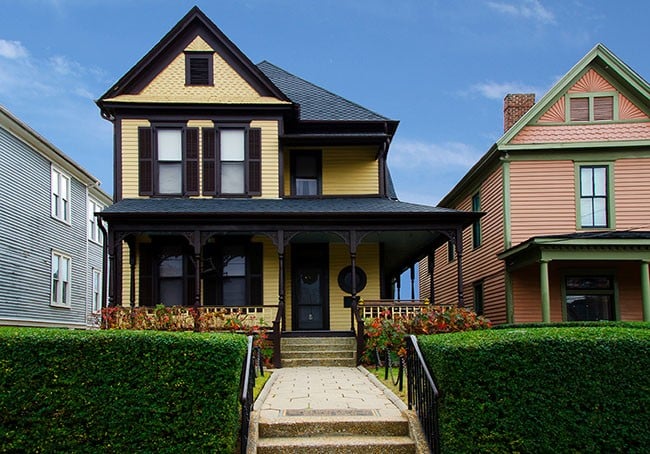Rent to Own Explained
July 16, 2017 by Marty Orefice | Rent to Own

When you and a seller sign a lease-option contract, you are agreeing to rent the seller's home and you have the option of purchasing the home at the end of the lease.
As for the difference between renting a home and renting to own one: there's a longer timetable, there is a lot more flexibility and certainty and there is the option not to purchase. However, purchasing isn't necessarily different than renting to own, it's simply the last stage of the rent to own process.
There are three basic components that make rent to own different from regular renting.
1. The option fee
2. The premium payments
3. The ability to buy the home you are living in.
Each of the above is described below.
Option Fee
To have the first option of purchasing the home, you pay a small option fee, which is typically anywhere from 1-5 percent of the eventual price that you will pay for the home.
This fee is different than most types of fees because you will likely get it back. It will be credited toward your down payment if you decide to purchase the home at the end of the lease.
The fee is like an insurance policy for the seller. The seller expects you to purchase the home. If you decide not to purchase the home, the seller keeps the option payment as a consolation for time lost.
Rent Payments
Just like in any other leasing arrangement, you pay fair market rent each month. However, because this is not a normal renting situation, you also pay premium payments each month.
You can negotiate with the seller to determine exactly how much these premium payments will be.
Just like the option fee, these payments will go toward the down payment on the home if you decide to buy it.
Also like the option fee, the seller keeps the money if you decide not to buy the home.
For that reason, as soon as you decide you don't want to purchase the home, you should end the lease. The longer you wait, the more of your money the seller will keep. The longer you wait, the longer the seller has to keep the property off the market, and; therefore, the more money the seller gets as a consolation.
So, Who Gets the Better Deal?
If you buy the home, you both get good deals. The seller didn't leave his or her property vacant for a long time. He or she collected rent money for a while and now has the money from selling his or her home. The seller gets a good deal, but so do you.
You have saved up money for a bigger down payment. So, you will probably get a better interest rate on your mortgage rate than you would have before.
You had more time to pay down debt and build up your credit score, which also got you a better interest rate on your mortgage.
You got the opportunity to live in the home before you purchased it. So, you are sure that your investment will be a good one.
If you don't buy the home, the seller gets a much better deal than you do.
The seller earned rent money that he or she would not have should he or she have left the property vacant while looking for a buyer.
The seller also gets to keep your option fee and all of the money you paid in premium payments.
However, it isn't necessarily a good deal because the seller still did not sell his or her home. He or she will need to go back to square one in finding a buyer. The seller might have also been depending on the money from the sale to purchase his or her own home.
You lost the option fee and the money you paid in premium payments; however, you might have had a good reason to lose it.
If you changed your mind on the property, you lost a lot less money than if you would have purchased it.
And if your financial situation changed, then it is better to lose a little bit of money than default on a mortgage payment and go into foreclosure.
So, Why Rent to Own?
Yes, renting to own helps you save up a down payment, but that was your money. You could have made the choice to rent and save the money anyway.
Rent to own is beneficial because it doesn't give you the option to saving the money, it is committing you to it. The financial investment makes it difficult for you to back out of paying each month.
Additionally, the financial investment pushes you to actually purchase a home. When you've already invested so much, it's hard to walk away from all you have saved. So, if you know that you've been wanting to purchase for a while, but something has been holding you back, rent to own could be the push you need.
Martin Luther King's Boyhood Home by Mike FairBanks is licensed under CC BY-SA 3.0.
